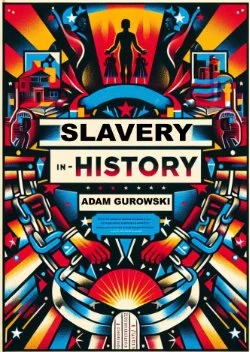By Adam Gurowski (Author), Colin Heston (Preface)
Adam Gurowski’s Slavery in History is a sweeping and impassioned historical treatise that challenges the reader to reconsider the institution of slavery not as a fixed or inevitable component of human civilization, but as a corrosive anomaly that has repeatedly undermined the moral and structural integrity of societies throughout history. Written in the mid-19th century, a time when the question of slavery was at the forefront of political and ethical discourse—particularly in the United States—Gurowski’s work stands as both a scholarly inquiry and a moral indictment. His approach is not merely descriptive; it is analytical and polemical, seeking to dismantle the notion that slavery is a natural or historically justified institution.
From the outset, Gurowski frames slavery as a “general disease” rather than a social norm, arguing that its presence in any civilization is symptomatic of deeper political and moral decay. He rejects the deterministic view that slavery is a universal or necessary stage in societal development, instead positing that it is an aberration that has consistently led to the decline of the cultures that embraced it. This thesis is developed through a methodical examination of a wide array of civilizations—from the Egyptians and Phoenicians to the Greeks, Romans, and beyond. In each case, Gurowski explores how slavery was integrated into the social fabric, how it was justified or resisted, and ultimately, how it contributed to the weakening or collapse of those societies.
Adam Gurowski’s view on modern slavery, particularly as it existed in the 19th century, is deeply critical and morally charged. In Slavery in History, he argues that for the first time in human civilization, slavery had been elevated into a comprehensive ideological system—a “religious, social, and political creed” . This modern form of slavery, especially as practiced in the United States, was not merely a continuation of ancient customs but a deliberate and systemic institution, defended by theology, law, and public discourse. He is especially scathing in his critique of how slavery in the modern era had been rationalized and sanctified by political leaders, religious figures, and intellectuals. He describes this as a “new faith” with its own “temples,” “altars,” and “fanatical devotees,” suggesting that slavery had become a kind of state religion in parts of the American Republic. This metaphor underscores his belief that modern slavery was not just a social or economic system but a deeply entrenched ideology that corrupted every aspect of public life.
Finally, his introduction to Slavery in History serves as both a roadmap and a manifesto. It outlines the historical scope of the book—spanning ancient to modern civilizations—and sets the tone for a critical, morally engaged exploration of one of humanity’s oldest and most pernicious institutions. Gurowski’s work is not merely a catalog of historical facts; it is a call to conscience, urging readers to recognize the enduring consequences of slavery and to commit to the principles of justice and equality. In doing so, he positions his book as a vital contribution to the intellectual and ethical debates of his era—debates that, in many ways, continue to resonate today.
Read-Me.Org Inc. New York-Philadelphia-Australia. 2025. 172p.



